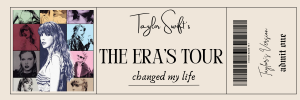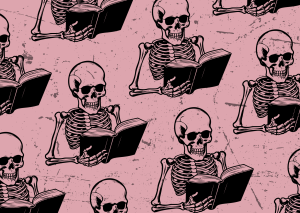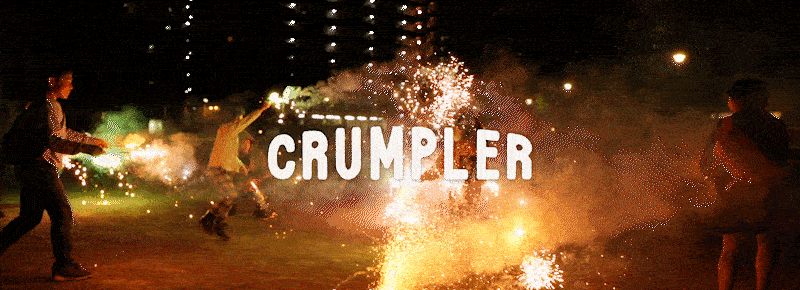
Chloe Zhao’s latest docu-narrative is a gutting realisation of the true America — even if it only dips its toes in.
‘The work horse that is willing to work itself to death and then be put out to pasture… If society is throwing us away and putting us out to pasture, we work horses have to gather together and take care of each other.’
Real-life van-dweller Bob Wells addresses a crowd of ageing, houseless people early on in Nomadland, framing the struggles of the film’s protagonist Fern (Frances McDormand) in no uncertain terms: the film is concerned with the survival and dignity of its older, more vulnerable characters.
Nomadland is a fictionalised adaptation of Jessica Bruder’s 2017 non-fiction book of the same name, which follows the lives of various people living transient lifestyles throughout the United States. Zhao introduces us to this world through the fictional Fern, who leaves the now-empty town of Empire, Nevada, where the gypsum plant that employed its inhabitants has closed due to the recession. Her husband now passed away, and her town now abandoned, Fern is able to commit herself to van dwelling and traverses the country by picking up temporary jobs and living in her van (Vanguard).
At one stage she comes across a family she knew as a teacher in Empire, who offer Fern a place to stay. When she politely turns this down, the daughter (Makenzie Etcheverry) asks if she is homeless. Fern says, ‘I’m not homeless. I’m just houseless. Not the same thing, right?’
This is an early example of the film turning the typical Hollywood drifter narrative on its head. The Bonnie and Clyde style glamour of the roadside lifestyle, maybe best encapsulated in My Own Private Idaho, is discarded in favour of a difficult struggle for freedom, in a deviation to realism over sensationalism.
Fern’s sister Dolly (Melissa Smith) later puts her nomadism down to Fern’s bravery and honesty and reduces her whole lifestyle to a thing of whimsy. But Nomadland does not treat nomads as whimsical and is instead much more interested in the reality and the mundanity of parking and pooping. For many supporting characters, the reality of transience is much less of a choice.
Linda May, a real-life nomad playing a fictionalised version of herself, recalls being pushed out of her home and being unable to retire. Having raised two children over a lifetime, she checked her social security benefits to see only $550. For Linda May, van-dwelling was much less of a choice.
There are almost no professional actors in Nomadland. Like Linda May, the other nomads are largely played by their real-life counterparts — most notably Swanke; a dying rockhound with an interest in kayaking, and Bob Welles; a youtube personality who has lived in a van for twenty-five years. The documentary-like observance of real people sharing genuine stories of struggle and heartache lends the film the credibility that it would flounder without — it is Zhao’s pass to enter this world.
In Nomadland, Zhao and cinematographer/production designer Joshua James Richards have created a different kind of Western — one preoccupied with using its sweeping landscapes as the backdrop of alienation rather than romanticisation. Interspersed with beautifully worked, uninterrupted close-ups of van dwellers, the framework for the drama is the raw form of documentary. This honesty doesn’t allow for Hollywood concepts of noble poverty to emerge from the film — in fact, many characters could even fit the Trump voter mould. The film’s success lies largely in pushing beyond these archetypes and into the things that make us human.
But Nomadland’s tapered examination of the systems working against its real-life characters has not gone unnoticed. A recent Vulture article points out that the gaps between Bruder’s book and the movie make it difficult to read for fans of the film. Details of Amazon’s abuse of its workers aren’t difficult to find, but specific workplace injuries affecting nomads (including the film’s Linda May) are examined extensively in the book. In Zhao’s film, nomads are only seen to be grateful for their gig work opportunities.
Similarly, Nomadland gives very little thought to the mechanics of the late 2000s recession, nor to its architects. Amazon’s CamperForce, used by the company to attract cheap labour in the busy season in the form of jobless nomads, is one beneficiary of the unemployment rate. Linda May herself is no fan of the giant, having tweeted in the past, ‘I hate this fucking job[, they’re] probably the biggest slave owner in the world.’ Injuries are the logical extension of a system in place to take advantage of the most vulnerable people. The tale of survival supersedes the cautionary tale of post-capitalism and does so to the film’s detriment. It is worth noting that Zhao signed with Amazon Studios in 2018 for an upcoming biopic.
But despite the more critical film about exploitation that could have been, the Nomadland that is, still manages to overturn romantic conceptions of poverty. Bob Welles establishes a kind of commune once every year with other ageing van-dwellers and lives his life in active defiance of conventional structures. He delivers lectures on van living, including a sermon on the ‘Ten Commandments of stealth parking’, and gives insight to Fern, as well as the other real nomads.
Fern herself is a kind of alter ego for McDormand — it is even hinted that Fern’s surname begins with the letters ‘McD’. But while this could have reduced the character to a vanity project, McDormand’s treatment of Fern is so tactile and genuine that even some of her co-stars didn’t know she was an actor.
She also doesn’t fit conventional representations of older women in film. She is childfree and this is not used against her by the film or its characters. She also basks nude in a creek, in a refreshing sequence that does not diminish an older woman’s naked body to a spectre of horror (The Shining, It Chapter 2, The Witch), but rather uses it as a symbol of freedom.
Fern is reluctant to ask for help, and over insists on paying her sister back when she helps with a mechanic’s bills. When a plate her grandfather left her is accidentally broken by fellow nomad Dave (David Strathairn), Fern methodically glues the shards together, lest she part with something useful. Fern’s insistence on reusing and refurbishing things she has invested time into is a theme of the film — from Vanguard to the plate. This is how Fern maintains freedom: she is never a victim and is never helpless.
Much like Fern’s broken plate, the citizens of Nomadland have been chewed up, spit out, and reduced to byproducts of a world that abandons and neglects. But it’s these citizens who refuse to be thrown away, and Nomadland refuses to treat its ageing subjects with the same contempt as American capitalism.







